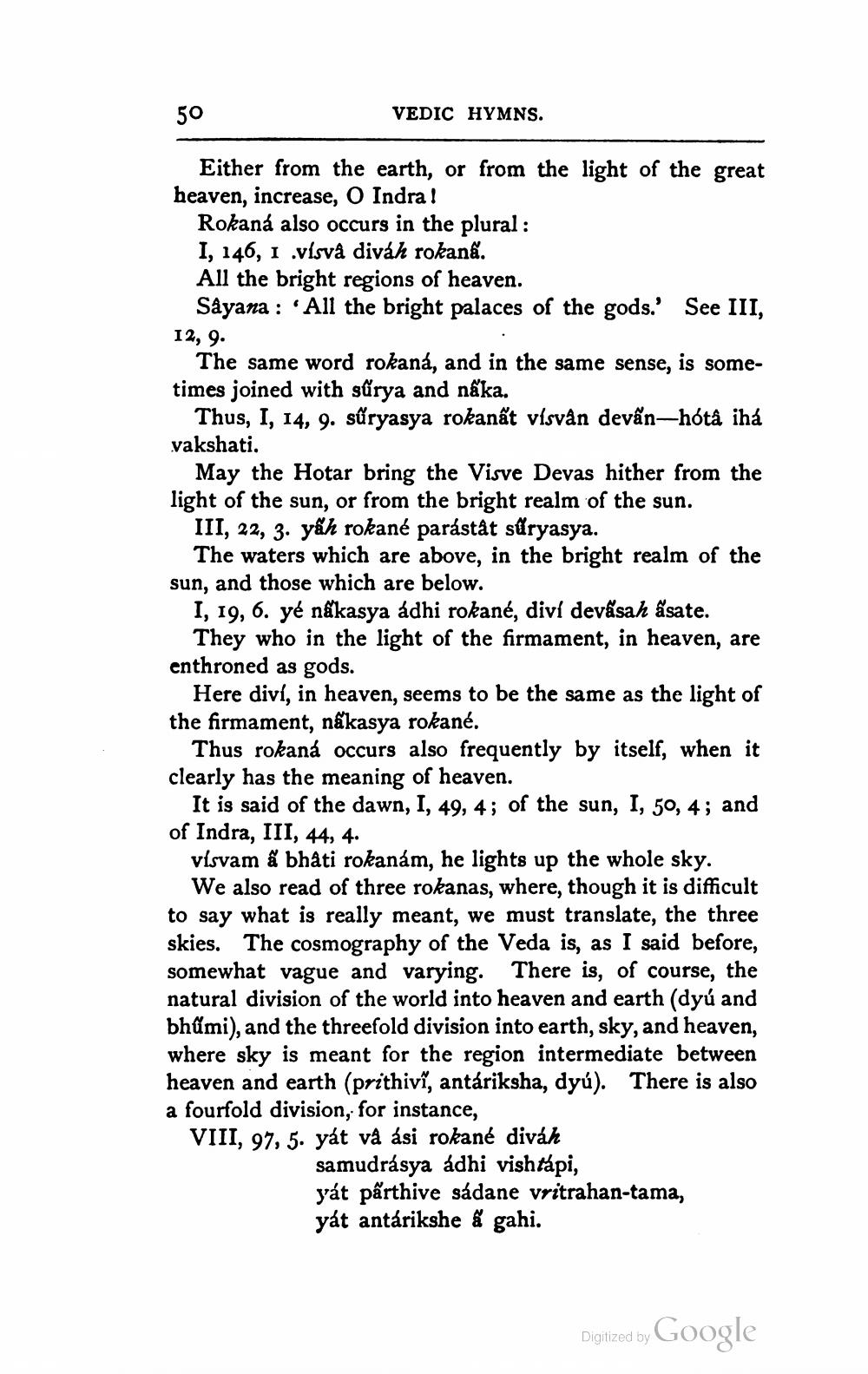________________
50
VEDIC HYMNS.
Either from the earth, or from the light of the great heaven, increase, O Indra!
Rokana also occurs in the plural: I, 146, 1 visvå diváh rokanã. All the bright regions of heaven.
Sayana : 'All the bright palaces of the gods.' See III, 12, 9.
The same word rokaná, and in the same sense, is sometimes joined with surya and náka.
Thus, I, 14, 9. sûryasya rokanát visvan devấn-hótå iha yakshati.
May the Hotar bring the Visve Devas hither from the light of the sun, or from the bright realm of the sun.
III, 22, 3. yâh rokané parástât süryasya.
The waters which are above, in the bright realm of the sun, and those which are below.
I, 19, 6. yé nākasya ádhi rokané, divi devāsah asate.
They who in the light of the firmament, in heaven, are enthroned as gods.
Here diví, in heaven, seems to be the same as the light of the firmament, nākasya rokané.
Thus rokaná occurs also frequently by itself, when it clearly has the meaning of heaven.
It is said of the dawn, I, 49, 4; of the sun, I, 50, 4; and of Indra, III, 44, 4.
visvam a bhàti rokanám, he lights up the whole sky.
We also read of three rokanas, where, though it is difficult to say what is really meant, we must translate, the three skies. The cosmography of the Veda is, as I said before, somewhat vague and varying. There is, of course, the natural division of the world into heaven and earth (dyú and bhúmi), and the threefold division into earth, sky, and heaven, where sky is meant for the region intermediate between heaven and earth (prithivî, antariksha, dyú). There is also a fourfold division, for instance, VIII, 97, 5. yát và asi rolanẻ dival
samudrásya adhi vish tapi, yát pấrthive sádane vritrahan-tama, yát antarikshe & gahi.
Digitized by Google




